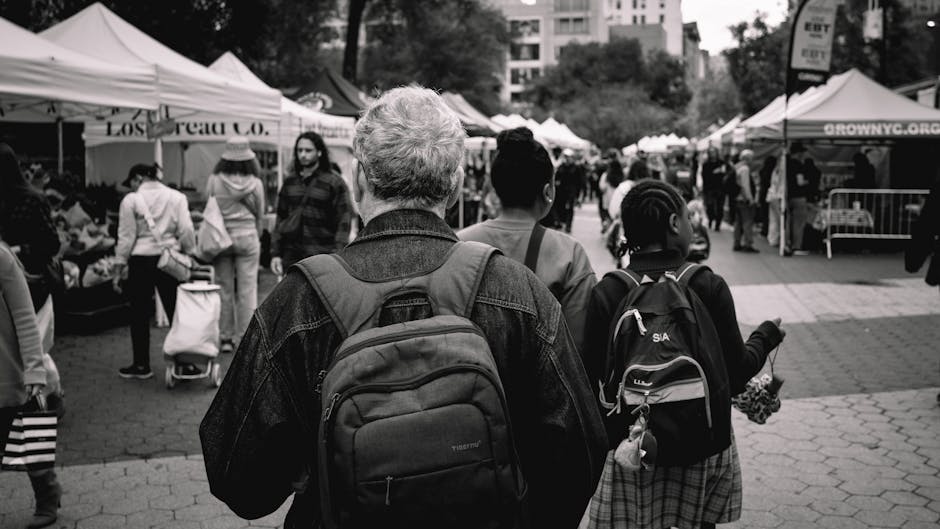NHRC Issues Notice to States, UTs Over ‘Inhumane Treatment‘ of Street Vendors
The National Human Rights Commission (NHRC) has issued notices to all states and union territories (UTs) following alarming reports of the “inhumane treatment” meted out to street vendors across the country. The move comes after numerous complaints highlighted the harassment, eviction, and brutal enforcement actions against vendors, who are often marginalized and dependent on their small-scale businesses for survival.
The NHRC, in its notice, has sought detailed reports from state governments and UT administrations within four weeks, including steps taken to address the issue and ensure the protection of vendors’ rights. The commission emphasized that street vendors, as essential contributors to the informal economy, deserve dignity and fair treatment under the law.
The Plight of Street Vendors
Street vendors are a ubiquitous presence in Indian cities and towns, offering affordable goods and services to millions. However, their livelihoods are frequently threatened by unregulated enforcement drives, arbitrary evictions, and confiscation of goods. Many vendors operate without licenses due to bureaucratic hurdles, leaving them vulnerable to exploitation and abuse by authorities.
Recent incidents have drawn widespread outrage. In one case, a vendor in Delhi was allegedly beaten by municipal workers during an eviction drive, while in Mumbai, vendors reported their goods being seized without warning. Such actions not only violate the vendors’ right to livelihood but also contravene the Street Vendors (Protection of Livelihood and Regulation of Street Vending) Act, 2014, which mandates the protection of vendors’ rights and the establishment of mechanisms for their rehabilitation.
Legal Framework and Implementation Gaps
The Street Vendors Act was enacted to safeguard the interests of vendors, recognizing their role in urban economies. It stipulates the formation of Town Vending Committees (TVCs) to regulate vending activities, issue licenses, and ensure that vendors are not displaced without proper rehabilitation. However, implementation has been inconsistent, with many states failing to constitute TVCs or enforce the law effectively.
Activists argue that the lack of political will and the absence of a robust grievance redressal mechanism have left vendors at the mercy of corrupt officials and aggressive enforcement agencies. “The law exists on paper, but it is rarely followed in practice,” said a spokesperson for the National Association of Street Vendors of India (NASVI). “Vendors are treated as criminals, even though they are just trying to earn an honest living.”
NHRC‘s Intervention
The NHRC‘s intervention marks a significant step toward addressing the systemic issues faced by street vendors. The commission has urged states and UTs to ensure compliance with the Street Vendors Act and to take immediate measures to prevent the harassment of vendors. It has also called for the establishment of TVCs in all urban areas and the provision of adequate rehabilitation facilities for displaced vendors.
In its notice, the NHRC cited Article 21 of the Indian Constitution, which guarantees the right to life and personal liberty, including the right to livelihood. “The inhumane treatment of street vendors is a violation of their fundamental rights,” the commission stated. “State governments must take proactive steps to protect their dignity and ensure their inclusion in urban planning processes.”
A Call for Systemic Change
While the NHRC‘s action has been welcomed by activists and vendors, many stress the need for systemic change to address the root causes of the problem. Experts argue that urban planning policies must recognize the informal sector’s role in sustaining cities and integrate vendors into the formal economy.
“Street vendors are not a nuisance; they are a necessity,” said an urban development expert. “Cities must create spaces for them to operate legally and safely, rather than driving them to the margins.”
As the NHRC‘s notice puts the spotlight on the plight of street vendors, it remains to be seen how states and UTs respond. For millions of vendors across India, the commission’s intervention offers a glimmer of hope for a more just and inclusive future.
In the meantime, the issue has reignited debates about the treatment of marginalized communities in urban spaces, underscoring the need for empathy, accountability, and systemic reform. As one vendor in Kolkata aptly put it, “We are not asking for much—just the right to earn our bread with dignity.”
Stay tuned to NextMinuteNews for updates on this developing story.




